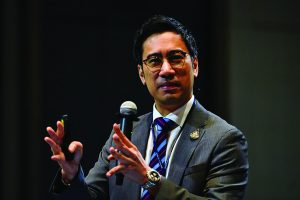BLOOMBERGÂ
Thailand’s central bank governor said the nation’s main political parties are trying to woo voters with policies that could undermine the country’s longer-term economic health.
“Any policies that hurt fiscal discipline — creating moral hazard, destroying credit culture — need to be monitored as they can be risky,†Bank of Thailand Governor Sethaput Suthiwartnarueput told reporters when asked to comment on promises by the nation’s politicians ahead of the May 14 vote. “The most important thing now is not stimulating the economy, it’s preserving our stability.â€
Thailand’s biggest parties are promising the nation’s more than 50 million voters everything from steep increases in cash handouts and wages to suspending debt repayments. Pledges from the top nine parties so far would require about 3.14 trillion baht ($91.2 billion) per year, after excluding their overlapping policies, according to an analysis by the Bangkok-based Thailand Development Research Institute.
Thailand will have general elections on May 14, its second set since a 2014 putsch by a group of former generals and their associated parties. The economy is forecast to grow 3.4% this year and 3.6% in 2024, according to the April 2023 forecast of the World Economic Outlook by the International Monetary Fund (IMF).
Sethaput said populist policies in the past have created only a short-term boost to the economy while burdening the nation with a longer-term debt problem. The policies should be more targeted and the limited budget should be spent to create a “sustainable outcome†like infrastructure investment.
“The populist policies tend to boost the economy too much,†he said. “What we shouldn’t do is the broad-based subsidies, which will benefit those who shouldn’t get it. The money should be used efficiently.â€
 The Gulf Time Newspaper One of the finest business newspapers in the UAE brought to you by our professional writers and editors.
The Gulf Time Newspaper One of the finest business newspapers in the UAE brought to you by our professional writers and editors.
